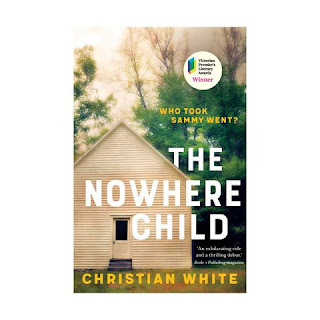Book review: Gone Girl by Gillian Flynn
Author Gillian Flynn, after creating a world of dysfunction, proceeds to thank her family and friends who sound remarkably normal and nice.
Maybe it was 'author's guilt' being appeased - borrowing from the foibles of her family in her fiction but wanting to distance them from the story of Amy and Nick and Go and Desi and the Elliots.
Or perhaps it is a further play with reality. The reader having been led through the deepest places of a deception possible in the human psyche, is deceived one more time into thinking Flynn comes from the perfect world.
After all, as the cover tag reads, 'there are two sides to every story...'.
The fact that this conjecture is even occurring, tongue-in-cheek as it may be, shows the power of Gone Girl in creating characters and plot line which compel us to find out who has the last word. For chapters at a time the story feels to be sitting on a knife edge, earning the description thriller, and the Observer's declaration, 'thriller of the year'.
A woman, goes missing, Amazing Amy, subject matter of her parent's series of children's books and one-time loved wife of Nick, a Missouri then New York magazine writer laid off as print gives way to digital.
We see and hear Nick's world as he goes through the experience of discovering his wife appears to have been abducted. We hear from Amy from what seems to be a journal of their lives.
Behind the urgency of a missing woman is the telling of a degenerating marriage, once idyllic, now just idle. And into this setting comes various family and community members, including police, who are drawn into the deep dysfunction surrounding the couple with continually fascinating consequences.
There's a continual theme of things not really being what they seem - whether it is the way the media, public interest and lawyers deal with the crime or the nature of relationships and feelings. You may leave off reading this book feeling just a little despairing - but you won't want to put it down...
Which is why the Acknowledgements at the end are almost an analgesic from the author to right us again for a real life. She must be, after all, just a nice person with a wicked imagination.
Gone Girl, Gillian Flynn, published June 2012 (January 2013 Aust), paperback 466 pages.
Reviewer: Peter Hallett
This work by http://www.cread.com.au is licensed under a Creative Commons Attribution-NonCommercial-NoDerivs 3.0 Unported License. Permissions beyond the scope of this license may be available at http://www.cread.com.au/p/about.html.



Comments
Post a Comment